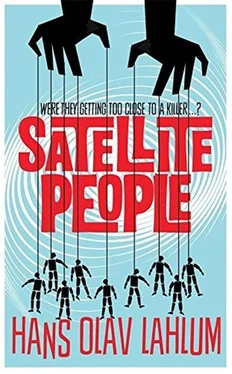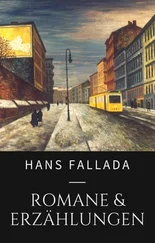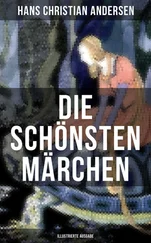I took the hint, withdrew my hands and stood up.
The last papers before the weekend were favourable, given the circumstances. The Labour Party conference had now finished but still dominated the news, and all the papers, with the exception of the Communist rag, Friheten , praised the party’s clear yes to the renewal of Norway’s membership of NATO. On the other hand, opinion was divided with regard to the Labour Party’s prospects in the autumn general election, and what significance the national conference’s unexpected vote in favour of demanding the introduction of abortion in Norway might have. The murder in Sørum last night was not covered by any of the papers. But the press had got wind of the news and the switchboard reported an increase in enquiries. I wrote a five-line press release in light of the ongoing investigation, stating that there would be no further comment.
At five minutes past midday, a police constable came running in to tell me that a witness from the night before had just come forward. He also warned me not to expect too much, certainly if one was to believe the witness himself.
I understood what he meant as soon as I saw the witness. He was a grey-haired, thin elderly man in a plain brown coat, who kept his eyes fixed to the floor as he twisted a cloth cap in his hands. When we shook hands, his was feeble and trembling.
‘I hope you’ll forgive me if I’m wasting your time, but… I don’t imagine that I have anything of much importance for you. But you see, I was up on the hill behind poor Synnøve’s house last night, and saw a car parked there. It was the wife who told me that they’d announced on the radio that anyone who was nearby was to report to the police immediately. I think I was the only one there; I certainly didn’t see anyone else. But I don’t really have much more to tell, so perhaps I should not have come.’
I assured the witness that he had done the right thing by coming. After a few minutes more, however, I also had to concede that he really did not have much of interest to add. He lived on a smallholding nearby and had been out walking his dog on the hill behind Synnøve Jensen’s house. The witness had passed the house at around half past eleven and was surprised to see a car parked up there in the dark. He had thought that it was perhaps the police or some other important people and so had taken a detour rather than pass too close to the car.
The witness had not seen anyone there, and could not give any further details as to the make or colour of the car. He knew very little about cars in general. He apologized and explained that his lack of interest was due to the fact that there had never been any real possibility of him ever owning one. The car he saw had a roof and wheels, but he would not dare to describe it in any more detail than that.
The conversation depressed me, but it seemed to be even more painful for the witness. It ended with him sitting with his face buried in his hands.
‘After seventy-two years working in the fields, without ever having achieved much, I have to witness my poor neighbour being killed in her own home. And I was close by and didn’t check on her. It’s terrible, may the Lord forgive me,’ he lamented.
I tried to comfort the man and asked a bit about his neighbours, but there was not much to be gained here either. Both he and his wife had realized that Synnøve Jensen did not have an easy life. Her father was a drunkard and her mother was depressed. But the neighbours had enough problems of their own and had not wanted to interfere. No one had a word to say against Synnøve herself, but then no one knew her very well either. She had worked very hard and in recent years had really only come home to sleep.
I eventually asked the witness to wait a few minutes and went to call Patricia from my office. I did not think that there was anything more to be had from him, but could not let him go until I had checked with her.
Patricia was obviously wide awake now and listened thoughtfully to my brief update.
‘I have only one question for the witness, but it is potentially extremely important. Was the door on the driver’s side open when he passed the car?’
I did not understand why this was relevant, but I went out and asked the witness. He looked up at me in surprise, but quite noticeably livened up.
‘No, I am absolutely certain of that, I could swear to it – I would have noticed if the driver’s door was open. I would have gone to see what had happened then. There’s no doubt about that!’
Suddenly the man was upbeat, almost cheerful. He repeated a couple of times that he was certain that the car door had not been open and then asked promptly if it was important. I still did not understand why it was significant, but replied that it was likely to be of considerable potential importance, and I thanked him profusely on behalf of myself and the entire police force. The man shook my hand in delight and more or less flew out of the room.
The door slammed shut behind him, but was opened again half a minute later. He had come back to offer me a written statement that the car door had been closed, if that would be of any help to the investigation. I assured him that a spoken statement would suffice for the moment, but that we would contact him later should we need a written statement. He gave a jovial salute and promised that he would stay at home and get up early until the case had been solved.
So in the middle of all the horror, I sat with a gentle smile on my lips until well after the witness had left the station. Whatever Patricia had meant by her curious question, it had certainly saved the day and the mental well-being of a well-meaning witness.
It was with a pounding heart that I went to meet the constable who had been on night watch at Schelderup Hall at around lunchtime. His report gave no cause for concern, however. He had been awake at his post all night and had seen no sign of anyone trying to get into or out of the building. The dogs had barked furiously for a few minutes around half past ten, and then again at about one o’clock in the morning. It would seem that this was entirely unprovoked on both occasions, and the night had otherwise passed without drama.
Afterwards, I rang Schelderup Hall and suggested that everyone should gather there at three o’clock. Sandra Schelderup immediately said yes to this.
I was unable to get in touch with one of the eight remaining guests by phone. I felt my heart beating faster as Ingrid Schelderup’s telephone rang again and again without being answered. However, I soon realized what might have happened and called the hospital, and was informed that she had been taken in the same morning. The constable who had been on guard outside her house overnight had driven her there only an hour before in a very unstable condition. Once he was back at the station he could tell me that she had appeared to be in relatively good humour the evening before, and that the night had passed without incident. But the news of Synnøve Jensen’s death in the morning had affected her with such unexpected force it had caused another collapse. Mrs Schelderup had been given tranquillizers when she got to the hospital and was now expected to sleep until early evening. This was not hard to believe. And in any case, from what the constable had told me, it could be ruled out that it was Ingrid Schelderup who had murdered Synnøve Jensen last night.
The others were easy to get hold of, but hard to fathom. The Wendelboes had been at home together all evening, and Herlofsen had been at home alone. His son and daughter-in-law could confirm that he had been there, as they had had an evening coffee together around ten, but they could not be certain that he had not left the house later.
Читать дальше












